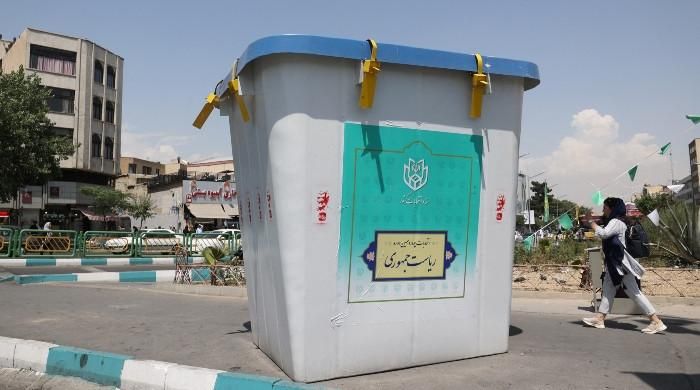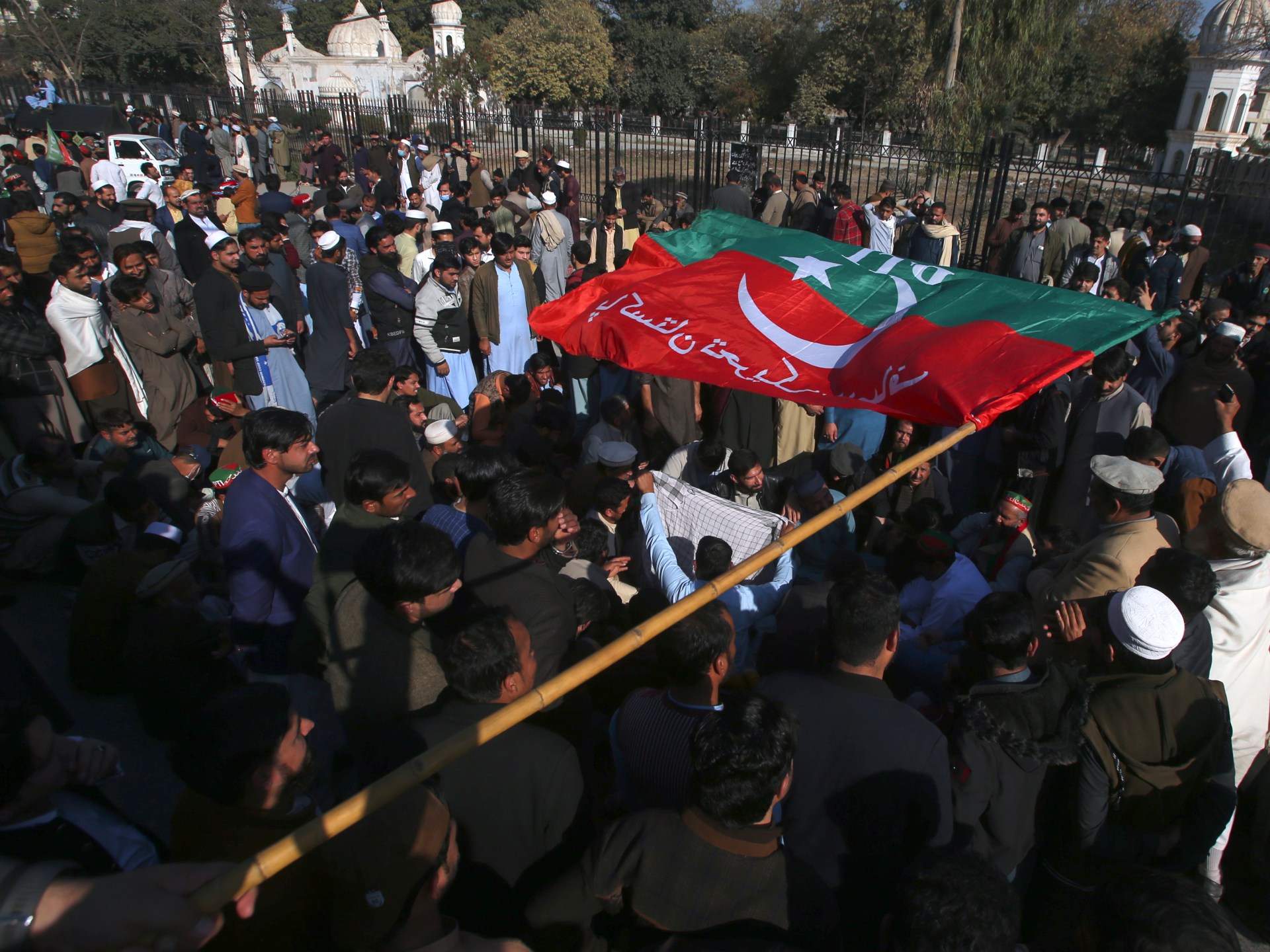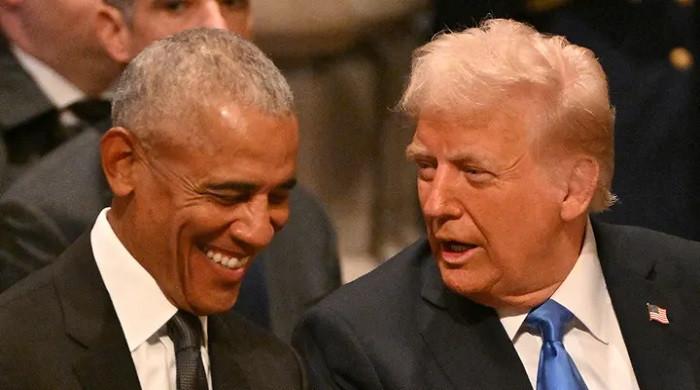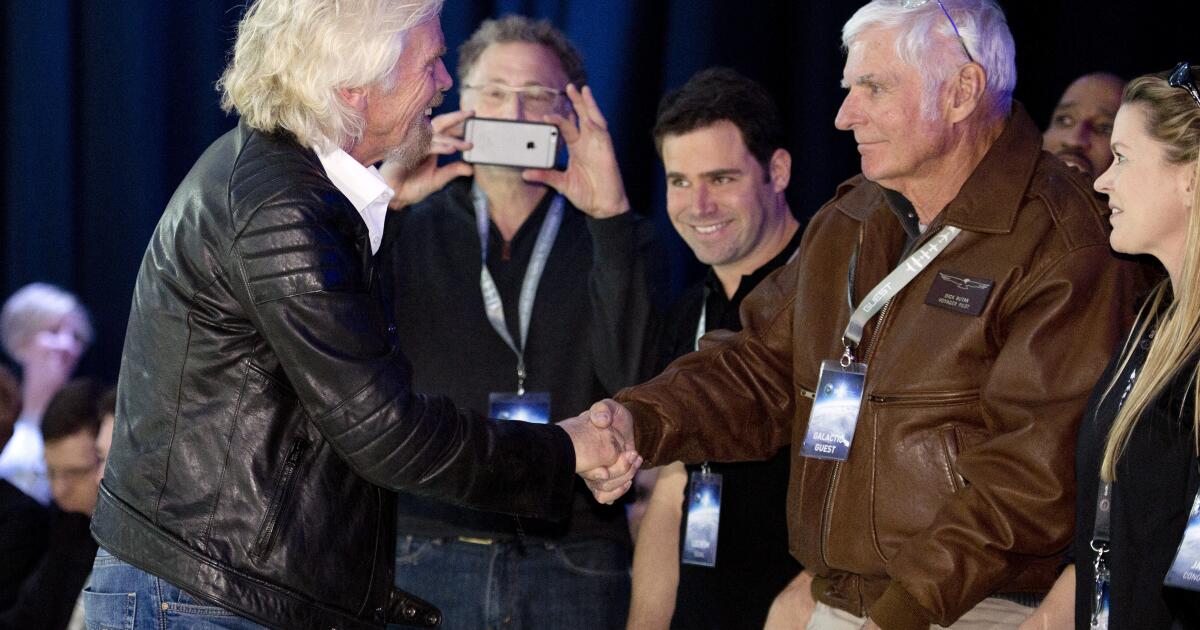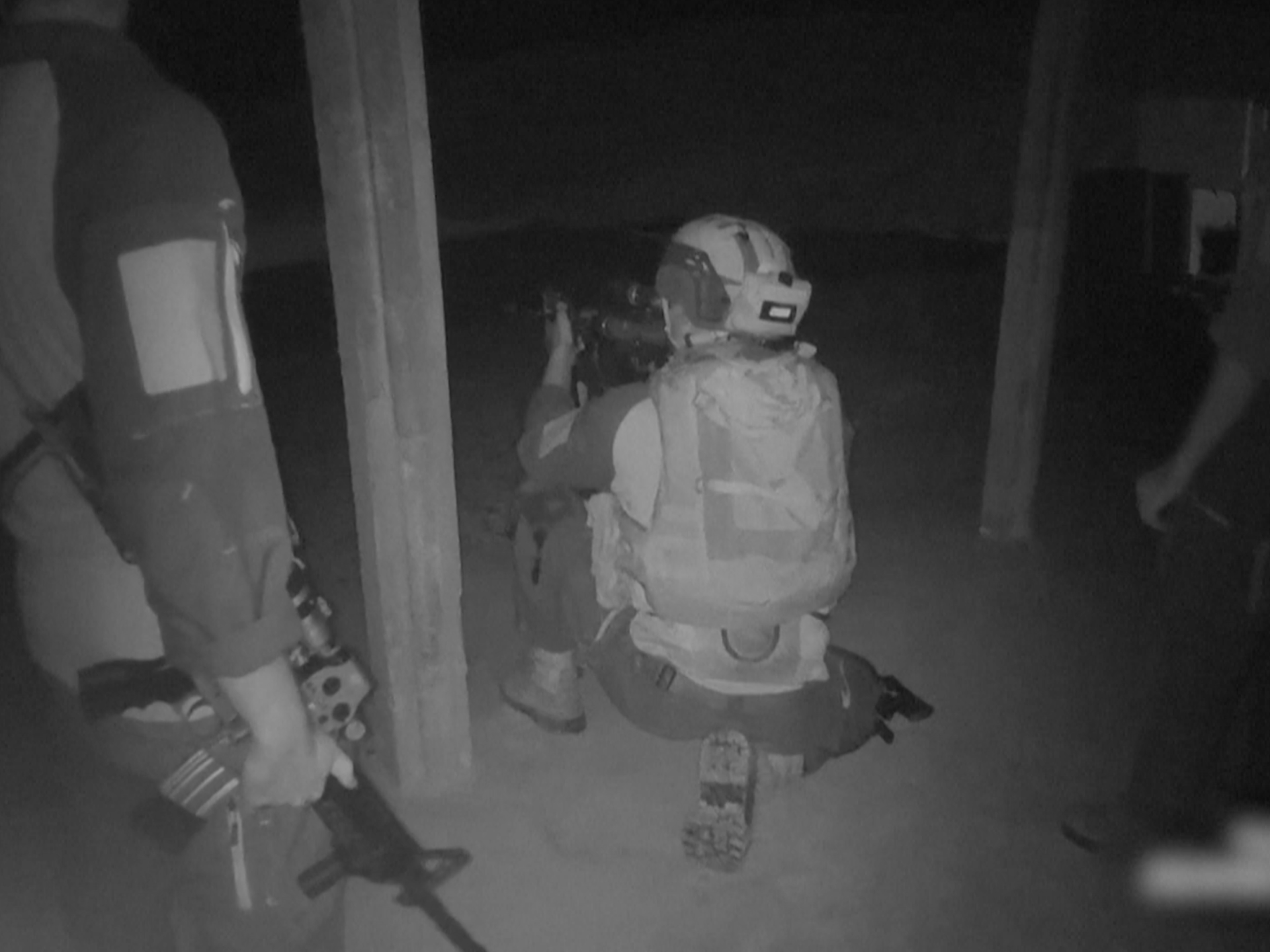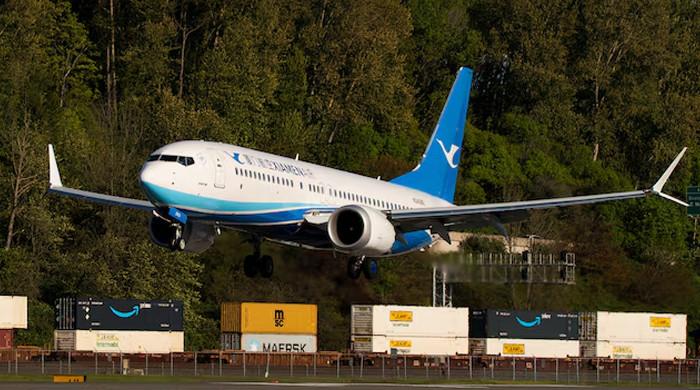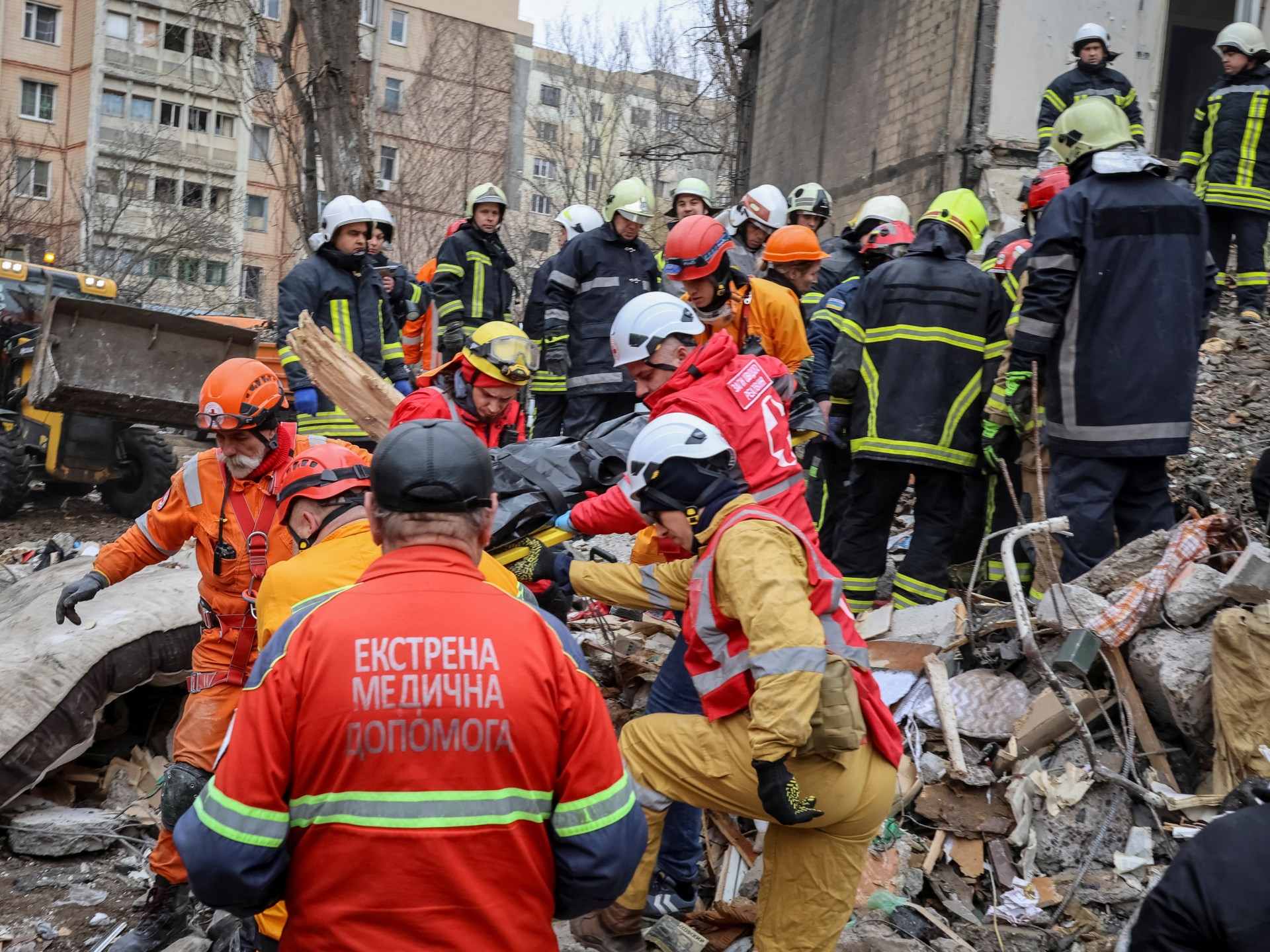- Voter turnout has plummeted in the last four years.
- Three of the candidates are hardliners and one is moderate.
- All candidates have promised to revive the ailing economy.
Iranians will vote on Friday for a new president following the death of Ebrahim Raisi in a helicopter crash, choosing from a group of four candidates, at a time of growing public frustration.
While the elections are unlikely to produce a major change in the Islamic Republic's policies, the result could influence the succession of Ayatollah Ali Khamenei, Iran's 85-year-old supreme leader, in power for three decades and half.
Khamenei has called for “maximum” participation to offset a crisis of legitimacy fueled by public discontent over economic hardship and restrictions on political and social freedoms.
Voter turnout has plummeted over the past four years, with a largely young population chafing at political and social restrictions.
Polls open at 8 a.m. local time (0430 GMT) and close at 6 p.m. (1430 p.m. GMT), but usually run until midnight. As votes are counted manually, the final result is expected to be announced within two days, although initial figures could be published earlier.
If no candidate receives at least 50% plus one of all votes cast, including blank votes, a runoff election will be held between the two candidates with the most votes on the first Friday after the election result is declared.
Three of the candidates are hardliners and one is a comparatively low-profile moderate, backed by the reformist faction that has been largely marginalized in Iran in recent years.
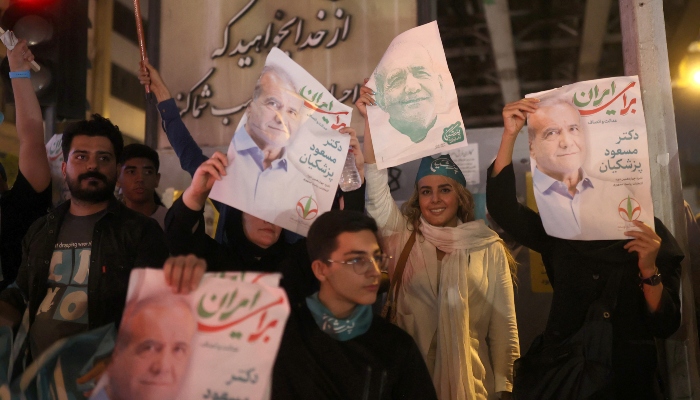
Critics of Iran’s clerical government say low and declining turnout in recent elections shows the system’s legitimacy has eroded. Only 48% of voters participated in the 2021 election that brought Raisi to power, and turnout hit a record low of 41% in a parliamentary election three months ago.
The election now coincides with escalating regional tensions over the war between Israel and Iranian allies Hamas in Gaza and Hezbollah in Lebanon, as well as increased Western pressure on Iran over its rapidly advancing nuclear programme.
The next president is not expected to bring about any major changes in policy on Iran's nuclear program or support for groups across the Middle East, as Khamenei makes all decisions on major state affairs. However, the president runs the government on a day-to-day basis and can influence the tone of Iran's domestic and foreign policy.
A hardline watchdog body, made up of six clerics and six jurists aligned with Khamenei, vets candidates and approved only six out of an initial pool of 80 candidates. Two hardline candidates later withdrew.
Among the remaining hardliners are Mohammad Baqer Qalibaf, speaker of parliament and former commander of the powerful Revolutionary Guard, and Saeed Jalili, a former nuclear negotiator who served for four years in Khamenei's office.
The only comparatively moderate, Massoud Pezeshkian, is loyal to the country's theocratic regime but advocates détente with the West, economic reform, social liberalization and political pluralism.
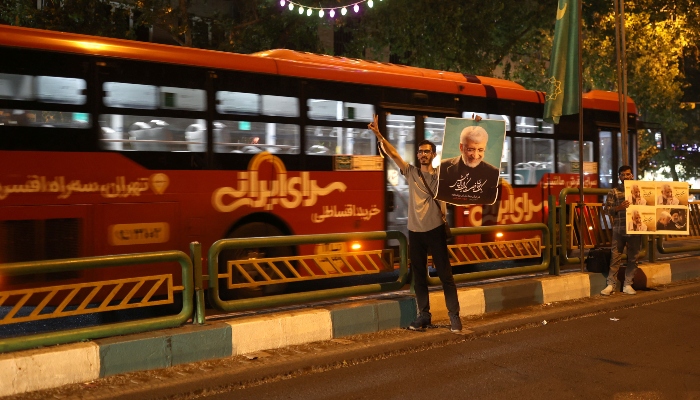
His chances depend on reviving the enthusiasm of reformist voters who have largely stayed away from the polls over the past four years after previous pragmatic presidents achieved little change. He could also benefit from his rivals' failure to consolidate the hardline vote.
All four candidates have promised to revive the ailing economy, beset by mismanagement, state corruption and sanctions reimposed since 2018 after the United States abandoned Tehran's 2015 nuclear pact with six world powers.
The hashtag #ElectionCircus has been widely posted on the social media platform

